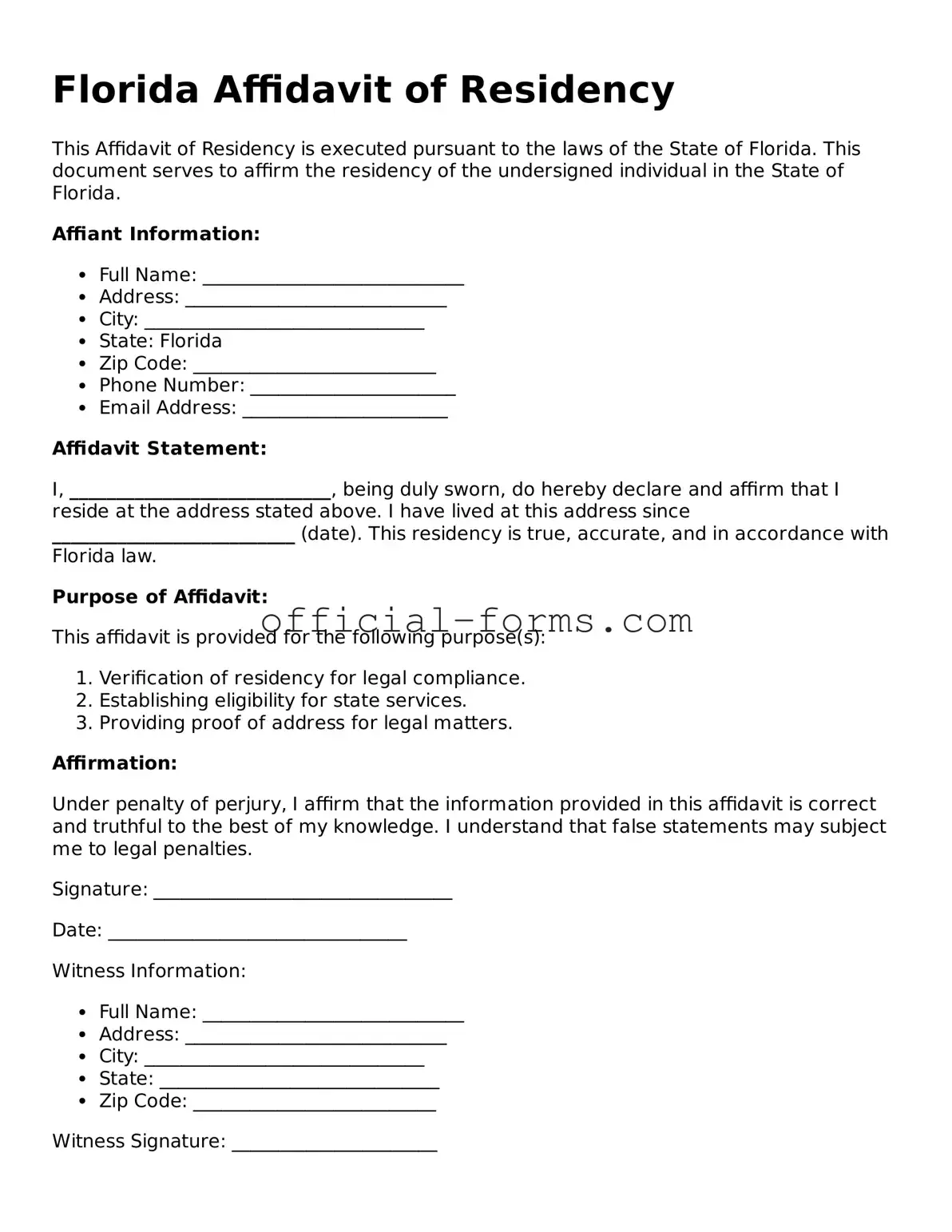Official Florida Affidavit of Residency Document
The Florida Affidavit of Residency form is a legal document used to verify an individual's residence in Florida. This affidavit serves various purposes, including establishing eligibility for certain benefits or services. Completing this form accurately is essential for compliance with state requirements.
Open My Affidavit of Residency Now

Official Florida Affidavit of Residency Document
Open My Affidavit of Residency Now
Don’t leave your form incomplete
Finish Affidavit of Residency online quickly from start to download.
Open My Affidavit of Residency Now
or
➤ PDF
